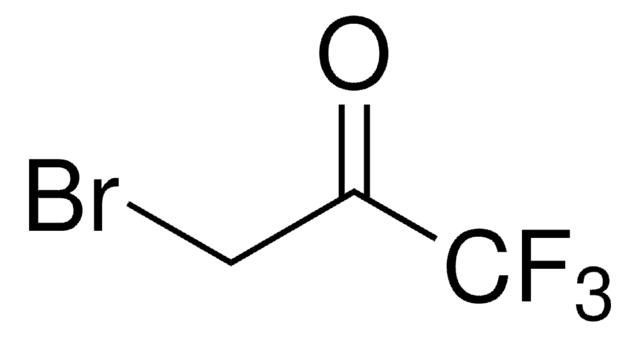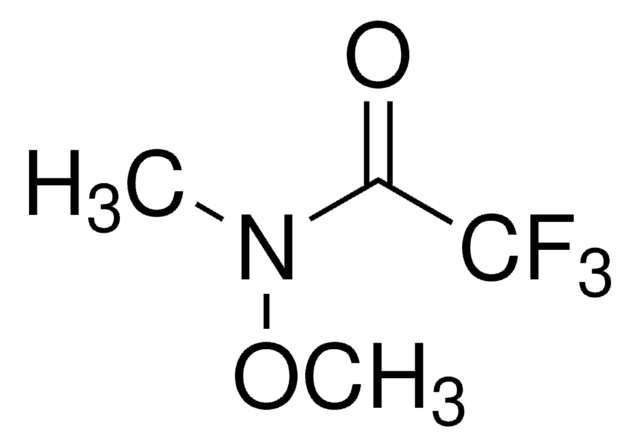All Photos(2)
About This Item
Linear Formula:
(CF3CO)2NH
CAS Number:
Molecular Weight:
209.05
Beilstein:
1793118
EC Number:
MDL number:
UNSPSC Code:
12352100
PubChem Substance ID:
NACRES:
NA.22
Recommended Products
form
solid
mp
80-86 °C
functional group
amide
SMILES string
FC(F)(F)C(=O)NC(=O)C(F)(F)F
InChI
1S/C4HF6NO2/c5-3(6,7)1(12)11-2(13)4(8,9)10/h(H,11,12,13)
InChI key
GMQVFHZSXKJCIV-UHFFFAOYSA-N
Related Categories
Other Notes
Reagent for the trifluoroacetylation of amino-, hydroxy- and thiol-groups (useful for GLC and MS analyses).
Storage Class Code
11 - Combustible Solids
WGK
WGK 3
Flash Point(F)
Not applicable
Flash Point(C)
Not applicable
Personal Protective Equipment
dust mask type N95 (US), Eyeshields, Gloves
Certificates of Analysis (COA)
Search for Certificates of Analysis (COA) by entering the products Lot/Batch Number. Lot and Batch Numbers can be found on a product’s label following the words ‘Lot’ or ‘Batch’.
Already Own This Product?
Find documentation for the products that you have recently purchased in the Document Library.
Customers Also Viewed
J Segura et al.
Journal of chromatography. B, Biomedical sciences and applications, 713(1), 61-90 (1998-08-13)
The development of low cost MS detectors in recent years has promoted an important increase in the applicability of GC-MS system to analyze for the presence of foreign substances in the human body. Drugs and toxic agents are in vivo
[Acylation with bis(acylamides). N-methyl-bis(trifluoroacetamide) and bis(trifluoroacetamide), two new reagents for trifluoroacetylation].
M Donike
Journal of chromatography, 78(2), 273-279 (1973-04-25)
Alex Siegel et al.
Journal of molecular biology, 432(24), 166708-166708 (2020-11-15)
The 43 kDa subunit of the chloroplast signal recognition particle, cpSRP43, is an ATP-independent chaperone essential for the biogenesis of the light harvesting chlorophyll-binding proteins (LHCP), the most abundant membrane protein family on earth. cpSRP43 is activated by a stromal factor
Jobst Liebau et al.
The Journal of biological chemistry, 295(29), 9868-9878 (2020-05-22)
Fold-switch pathways remodel the secondary structure topology of proteins in response to the cellular environment. It is a major challenge to understand the dynamics of these folding processes. Here, we conducted an in-depth analysis of the α-helix-to-β-strand and β-strand-to-α-helix transitions
Anette Kaiser et al.
Molecules (Basel, Switzerland), 25(20) (2020-10-21)
Many biological functions of peptides are mediated through G protein-coupled receptors (GPCRs). Upon ligand binding, GPCRs undergo conformational changes that facilitate the binding and activation of multiple effectors. GPCRs regulate nearly all physiological processes and are a favorite pharmacological target.
Our team of scientists has experience in all areas of research including Life Science, Material Science, Chemical Synthesis, Chromatography, Analytical and many others.
Contact Technical Service








